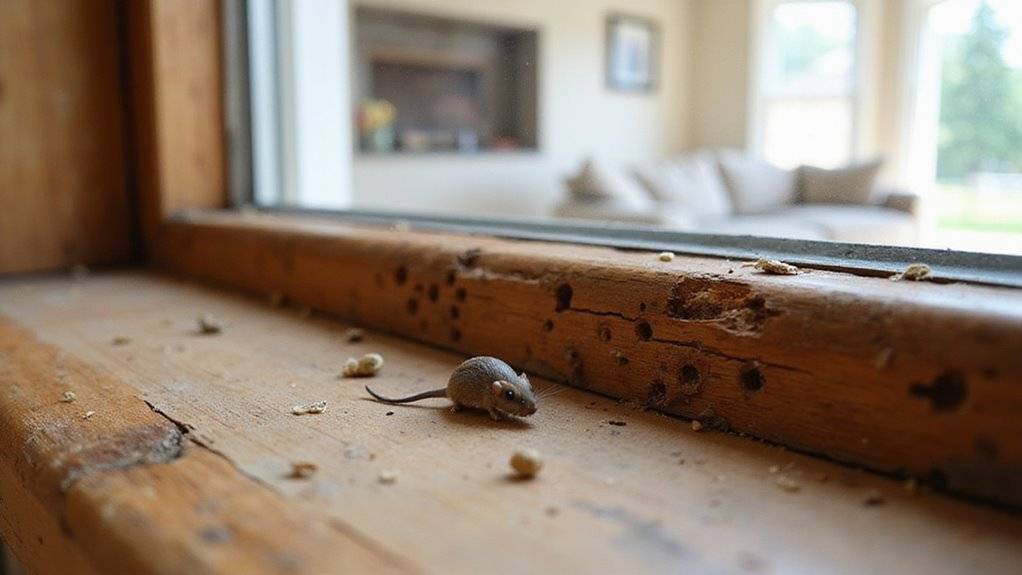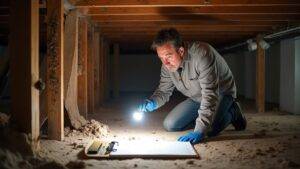Pest damage is a real concern when selling a house. Visible infestations or damage can turn away buyers instantly. Most people want a home that feels safe and clean.
Unaddressed pest issues make your property less attractive. Buyers may worry about costly repairs or ongoing infestations. This can lead to lower offers or no offers at all.
You should always treat pest damage before putting your house on the market. This protects your investment and attracts serious buyers.
Proper treatment can help your home sell faster and for a better price. This blog will guide you through solving pest problems before selling your house, so you get the best possible result.
Key Takeaways
- Treating pest damage before selling increases your home’s value and attracts more confident buyers.
- Unrepaired pest issues can lead to lower offers, failed inspections, and delayed or lost sales.
- Disclosing and fixing pest problems avoids legal trouble and builds trust with potential buyers.
- Professional pest control and repair provide documentation that reassures buyers and supports smoother negotiations.
- Addressing pest damage early enables better staging, marketing, and a faster, more profitable sale.
Understanding Common Types of Pest Damage
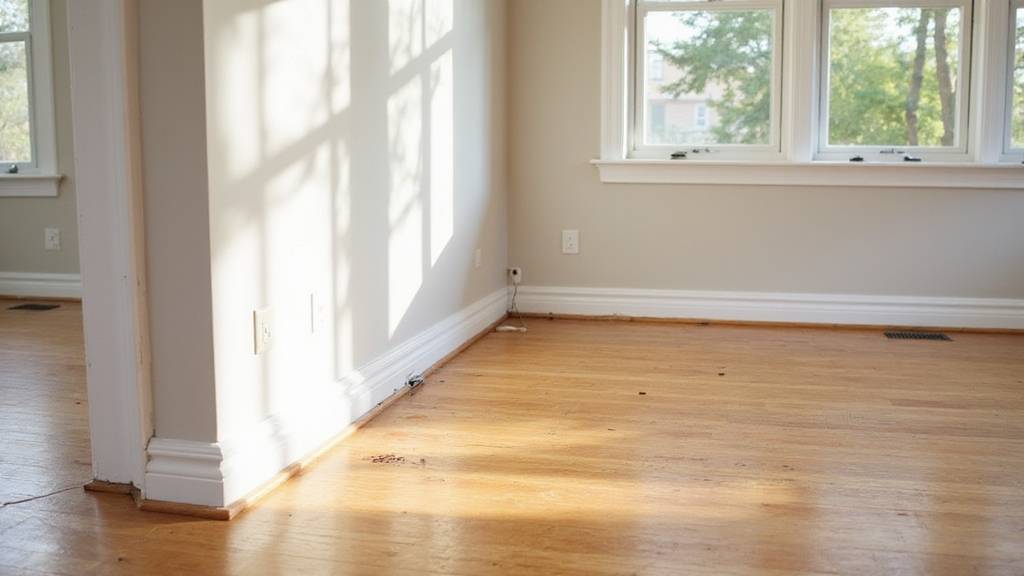
When selling your house, you should know the main types of pest damage. Pest problems can lower your home’s value and make it harder to sell. Common pests like termites and carpenter ants cause the most trouble.
Termite damage is often hidden but very serious. These insects eat wood from the inside, leaving hollow spots or small mud tubes. If you do not spot them early, serious damage can happen. Termite damage is hard to spot and can cause major problems, as these pests eat wood from the inside out.
Carpenter ants also damage wood, but they do not eat it. They dig tunnels inside wood, making structures weak. You might see sawdust piles or small holes if they are present.
If you notice signs of pests, fixing the problem quickly is important. Early action can help protect your home’s value. Potential buyers will feel more confident if the home is pest-free.
How Pest Problems Affect Home Value
Pest problems can lower your home’s value and make it harder to sell. Buyers often see pests as a sign of neglect. They may worry about unseen damage and extra repair costs. Addressing pests before selling shows you care for your home. This step helps prevent buyers from asking for discounts.
If you fix pest issues early, you may attract more buyers and get a better price. Additionally, fair offers depend on the true condition of your property, so resolving pest problems can lead to more favorable negotiations. Proper legal disclosure and documentation can also help avoid potential legal disputes that could delay or complicate the sale process.
Home Inspection Reports and Pest Issues
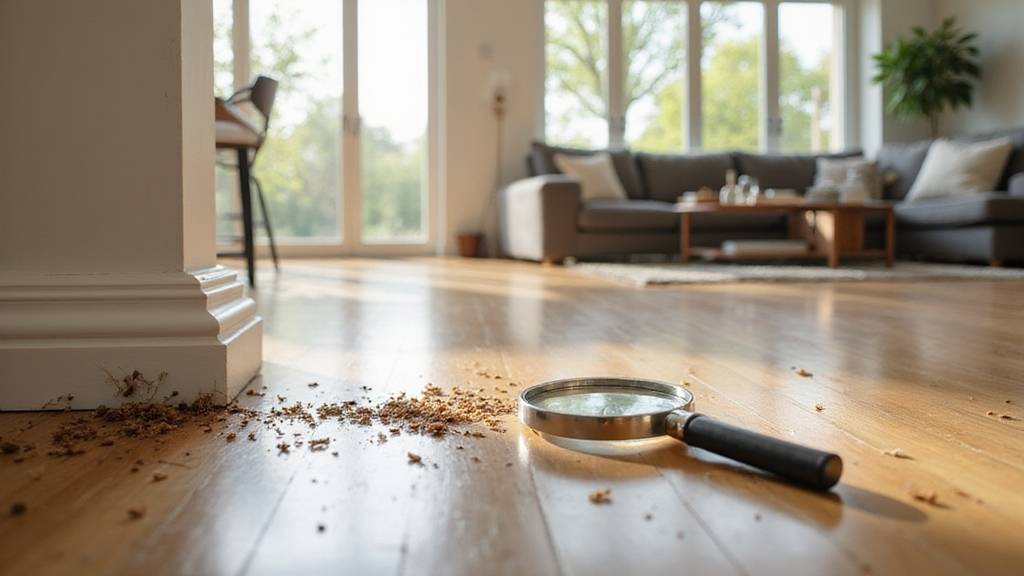
Home inspection reports help buyers see a property’s true condition. If there is pest damage, inspectors will find and report it. Pest issues can lower your home’s value and slow down the sale.
Inspectors look for signs like termite tunnels or rodent droppings. They also check for wood rot, chewed wiring, and ant trails. If inspectors find these problems, buyers may become concerned. Addressing pest issues early can also prevent potential liens or disputes related to pest damage repairs, ensuring a smoother closing process.
If you fix pest problems before listing, your home is more likely to pass inspection. A pest-free home can attract more buyers. This can make selling your home easier and faster.
Additionally, addressing pest issues early helps build buyer trust and clear title by preventing lien complications related to pest damage repairs.
Buyer Perceptions and First Impressions
When buyers spot pest damage, it immediately hurts your home’s curb appeal and raises doubts about its overall condition. You risk losing their trust, which can lead to lower offers or even turn serious buyers away. Addressing these issues upfront ensures your property stands out and commands a stronger price. Additionally, resolving pest issues before listing can prevent potential delays during the sale process due to inspection or appraisal concerns that could complicate the transfer of clear title.
Impact on Curb Appeal
Pest damage lowers your home’s curb appeal. Buyers may notice chewed wood, damaged plants, or holes in the lawn right away. Visible damage can make even a tidy yard look messy.
If pest problems are left untreated, they may also affect outdoor lighting. Damaged areas can create shadows that highlight flaws instead of hiding them. This may make buyers think the home is not well cared for.
Fixing pest issues before selling can help your house look its best. Healthy lawns, clean exteriors, and working lights will impress buyers. Repairing damage now can make your property more attractive and market-ready.
Trust in Property Condition
Buyers lose trust in your property if they see pest damage. They may doubt the overall condition of your home. This doubt can make them worry about other hidden problems.
If buyers notice damage, they may think you have not maintained the house well. They could also question if there are more issues they cannot see. Such concerns may stop them from making an offer.
You should fix pest damage before showing your home. Doing so shows that you care for the property. If the house looks well-kept, buyers are more likely to trust its condition.
Influence on Offer Price
Visible pest damage can lower the price buyers are willing to offer. Buyers often see pest issues as a sign of neglect. They may offer less money if they notice these problems.
If your home is in an area known for pest problems, buyers may choose other properties. They consider the cost and effort needed to fix pest damage. This often leads to lower offers or requests for repairs.
Addressing pest damage early can help protect your home’s value. A home without visible issues attracts more buyers. Quick action shows buyers your property is a safe investment.
The Cost of Pest Treatments vs. Potential Losses
You need to weigh the upfront cost of pest treatments against the larger financial hit you could take at closing. By understanding typical treatment expenses and how untreated damage can slash your sale price, you’ll see why it’s a smart investment.
Addressing these issues now protects your bottom line and keeps your property competitive. Additionally, pricing your house correctly can help attract buyers quickly and reduce the likelihood of negotiations falling through due to unresolved pest issues.
Treatment Expenses Breakdown
Treatment expenses for pest control include inspections, standard treatments, specialized treatments, and ongoing prevention. These costs vary based on pest type and home size. If you understand these expenses, you can budget for what your home needs.
Inspection fees usually range from $75 to $200. Prices depend on both the size of your home and the pests involved. If your home is large or you have a difficult pest problem, you may pay more.
Standard treatments for common pests like ants or rodents cost between $150 and $400. Specialized treatments for termites or severe infestations range from $500 to $2,500. If you have a severe problem, costs can rise quickly.
Ongoing prevention services cost $40 to $100 per month. This includes regular visits to keep pests from returning. If you want long-term protection, monthly maintenance is recommended.
Impact on Sale Price
Visible pest damage lowers your sale price. Buyers often see pests as a sign of deeper problems. If buyers spot pest issues, they may offer less or walk away.
Some buyers may ask for big discounts or repair credits. These costs are usually higher than early pest treatments. If you handle pest problems early, you avoid last-minute price drops.
A termite inspection is a small expense compared to losing value during escrow. If you invest in prevention, you protect your price and attract buyers. Proper inspections help your home sell faster and for more money.
Legal Requirements for Disclosing Pest Damage
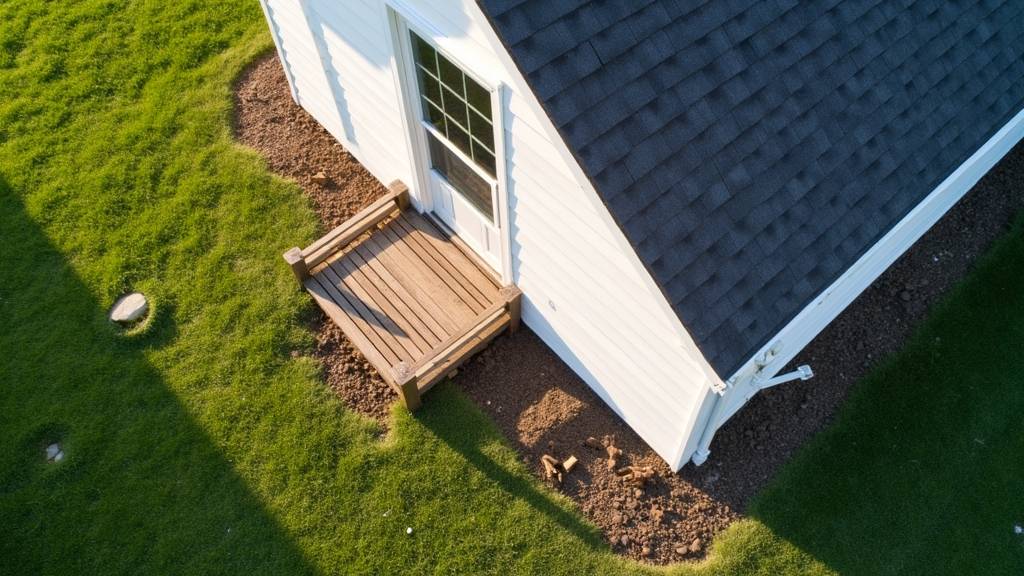
Most states require sellers to tell buyers about any pest damage or infestations. This is a legal rule you must follow. If you do not disclose, you could face legal problems or lose the sale.
State laws can be different, so check your own state’s rules. Sellers must fill out all forms about pest damage honestly. If you hide problems, you risk legal trouble later.
You should keep records of pest inspections or treatments. These documents help prove you are being honest. If buyers ask, you must share this information.
Clear communication about known pest issues builds trust. If you are open about damage, the selling process is usually easier. If issues are not disclosed, future disputes are likely. Being aware of disclosure requirements is crucial to avoid legal complications. Additionally, understanding the market value of your property can help you present an accurate and fair disclosure.
Negotiating Repairs in the Selling Process
Negotiating repairs is a common step when selling a home with pest damage. Buyers often want repairs done before closing the sale. Sellers should be ready to discuss pest prevention and any structural issues. If you fix all repairs, your home becomes move-in ready. Offering repair credits lets buyers handle repairs their way. Partial repairs address the most important problems, sharing responsibility.
Selling “as-is” means you offer no repairs, but buyers may expect a lower price. Paying for a professional inspection gives buyers an independent report. Consider market conditions and how they influence buyer expectations to choose the option that matches your goals and the local market. Being aware of pricing strategies can help you decide whether to offer repairs or sell as-is, based on current demand and competition.
DIY Pest Control vs. Hiring Professionals
When addressing pest damage before selling, you need to weigh the upfront costs and long-term value of doing it yourself versus hiring professionals. You’ll also want to consider which option delivers lasting results and meets your legal disclosure obligations. Making the right choice here protects your sale and your bottom line.
Additionally, understanding proper preparation and transparency can help facilitate a smooth transaction with potential buyers. For minor pest issues or superficial damage, often cosmetic flaws can be overlooked, but ensuring safety and compliance is key.
Cost Comparison and Value
Cost comparison and value help you decide between DIY pest control and hiring professionals. If you want to boost your home’s value before selling, you need to know which option gives the best return. Thinking through costs and benefits will guide your choice.
DIY pest control can cost less at first. However, mistakes may cause extra repairs, which increase your total spending. Professional services might seem pricey, but they often include inspections and guarantees.
If you want buyers to feel confident, professional treatment can help. Buyers may pay more for homes with a proven pest-free record. If you handle pests yourself, buyers could worry about the quality of the work.
Consider your time and effort as well. If you have limited time, hiring experts will save you hassle. Choosing professionals can also mean quicker and more reliable results.
Effectiveness and Long-Term Results
Professional pest control is the most reliable way to get lasting results when selling your home. DIY methods may not solve the root problem or stop pests from coming back. If buyers want peace of mind, they will look for proof that pests are gone for good.
If you hire experts, they can remove pests and give you a warranty. This warranty can help buyers feel more confident about your home. Professional services can also add value to your property.
If you invest in pest-resistant landscaping, your yard will be less attractive to pests. Professionals can suggest the best plants and designs for this purpose. These steps make your home more appealing and easier to sell.
Disclosure and Legal Obligations
Sellers must follow the law by disclosing any pest problems or damage when selling a home. State laws often require you to give written information about pest issues and any treatments. Failing to disclose these can bring legal trouble.
All known pest damage or pest habitats must be shared with buyers. You should keep records of any pest control work, especially from professionals. If you are unsure about local rules, check with a real estate agent or attorney.
Written disclosures protect you from future liability. Honest communication builds trust with buyers. Following these steps helps ensure a smooth and legal home sale.
Timeline Considerations for Pest Remediation
Pest remediation can affect your home selling timeline. You should address pest issues before buyers visit or schedule inspections. If you delay, your listing date could be pushed back. Additionally, decluttering and depersonalizing your home can help highlight any damage caused by pests, making it easier for inspectors and buyers to assess the true condition of the property. Work with your real estate agent and pest control company early.
This helps you fit remediation into your selling schedule. Early action allows time for repairs and follow-up inspections if needed. Buyers will see you have cared for your home. A well-timed approach reduces selling delays and protects your home’s value. Properly managing property condition can also influence how quickly your house sells. If you plan ahead, the sale process will be smoother.
Staging a Home After Pest Treatment
Staging a home after pest treatment helps the property look its best for buyers. The goal is to remove all signs of pest work and make the house feel clean and welcoming. If you stage well, buyers will feel more confident about the home.
Begin by deep cleaning every room, especially carpets, baseboards, and corners. Any area affected by pests should be repaired and repainted for a smooth appearance. If there are lingering odors, use air purifiers or open windows to freshen the space.
Analyzing comparable sales can help determine the appropriate level of staging and presentation to attract buyers. Deep clean every room and repair any damage to ensure your home feels fresh and inviting after pest treatment.
Add small touches like fresh flowers and neutral decorations to create a pleasant atmosphere. Good lighting can make rooms look bigger and more inviting. If you highlight the home’s best features, buyers may overlook past issues.
If you stage carefully after pest treatment, the home will seem move-in ready. This can help you receive better offers and sell faster. Proper staging shows buyers the home is well cared for.
Marketing Your Home After Addressing Pest Issues
Now that you’ve addressed pest issues, you can market your home as a well-maintained, move-in ready property. Highlighting recent treatments and repairs boosts your home’s value and reassures buyers that they’re making a sound investment. Use these improvements to build trust and set your listing apart in a competitive market.
Enhancing Property Value
Enhancing property value after pest treatment is straightforward. Pest control shows buyers the home is clean and well cared for. If you solve pest issues, your home’s condition and value will likely improve.
Homeowners should repair any damage pests caused. Fresh paint and updated landscaping make the house look more inviting. Clean, well-maintained homes attract more buyers.
If you highlight pest prevention in your listing, buyers will feel more confident. Updated photos that show improvements can make your home stand out. These steps may help your home sell faster and at a better price.
Building Buyer Confidence
Buyers feel more confident when they know a home has no hidden pest problems. Addressing pest issues before listing shows you care about the property. Providing inspection and repair records gives buyers peace of mind.
You should list the steps taken to fix pest issues in your marketing materials. Showing proof of professional treatments lets buyers know pests are not a worry. If you are transparent, your property stands out from others.
Being honest about pest control can help in negotiations. Buyers may trust you more and move forward quickly. This approach can lead to a faster sale.
The Role of Real Estate Agents in Managing Pest Concerns
Real estate agents help stop pest problems from ruining your home sale. Agents spot pest concerns early and give practical solutions. If you want a smooth sale, you should involve your agent in pest prevention.
The agent can suggest trusted pest inspectors. They will schedule needed inspections and treatments. If problems appear, your agent will help you fix them quickly.
Agents explain what pest issues must be shared with buyers. They also highlight your pest control efforts in marketing. This gives buyers confidence and can make your home stand out.
If you work closely with your agent, you can manage pest issues before they grow. This protects your home’s value and helps your sale succeed.
Long-Term Benefits of Pre-Sale Pest Treatment
Pre-sale pest treatment gives your home long-term benefits. If you treat pests before selling, your property stands out in the market. Buyers see a well-cared-for home and may feel more confident making an offer.
You could get higher offers and face fewer buyer objections. Inspections usually go better, which can lead to a faster closing process. If buyers trust the property, you are less likely to deal with post-sale issues.
Pest prevention also helps you save money in the long run. It reduces the chance of structural damage and lowers future repair costs. If you invest early, you protect your home’s value and attract more buyers.
Weighing the Risks of Selling As-Is With Pest Damage
Selling your house as-is with pest damage can be risky. Buyers notice pest issues right away and might lose interest. Skipping repairs often leads to problems during the sale process.
If you list with pest damage, fewer buyers will consider your home. Most people want a house that is ready to move into. Pest issues can make your property less attractive.
Pest damage usually leads to lower offers because buyers expect to pay for repairs. You might face longer selling times as well. Some buyers may even walk away from negotiations.
If there is pest damage, inspections may fail. Lenders can refuse to approve loans for homes with these problems. This could delay or stop your sale altogether.
You must also legally disclose any pest damage. If you do not, buyers may back out or take legal action. Fixing pest issues before selling helps protect your investment.
Conclusion
If you address pest damage before selling your house, you increase your chances of a smooth sale. Buyers often feel more confident when they know the home is pest-free. This can help you avoid last-minute negotiations or delays.
If you leave pest issues unresolved, your home could lose value and attract fewer buyers. Resolving these problems early can turn potential obstacles into advantages for you. This can lead to a quicker and more profitable sale.
If you want to sell your house fast and avoid the hassle, we buy houses for cash. At Align Real Estate Solutions, we offer a simple selling process for homeowners. Contact us today to see how we can help you move forward confidently.
Author
-

Zach Koops is co-founder and Real Estate Success Manager at Align Real Estate Solutions, serving homeowners across Virginia since 2024. With a passion for real estate and a heart for people, Zach has built his career around helping sellers navigate tough situations—foreclosure, inheritance, relocation, repair-overload—with clarity and compassion. He’s known for being straightforward, steady under pressure, and deeply invested in relationships. Outside of work, he spends his time as a husband and father, enjoys the outdoors in Shenandoah Valley, loves singing on stage, and constantly seeks growth through reading and new experiences.

